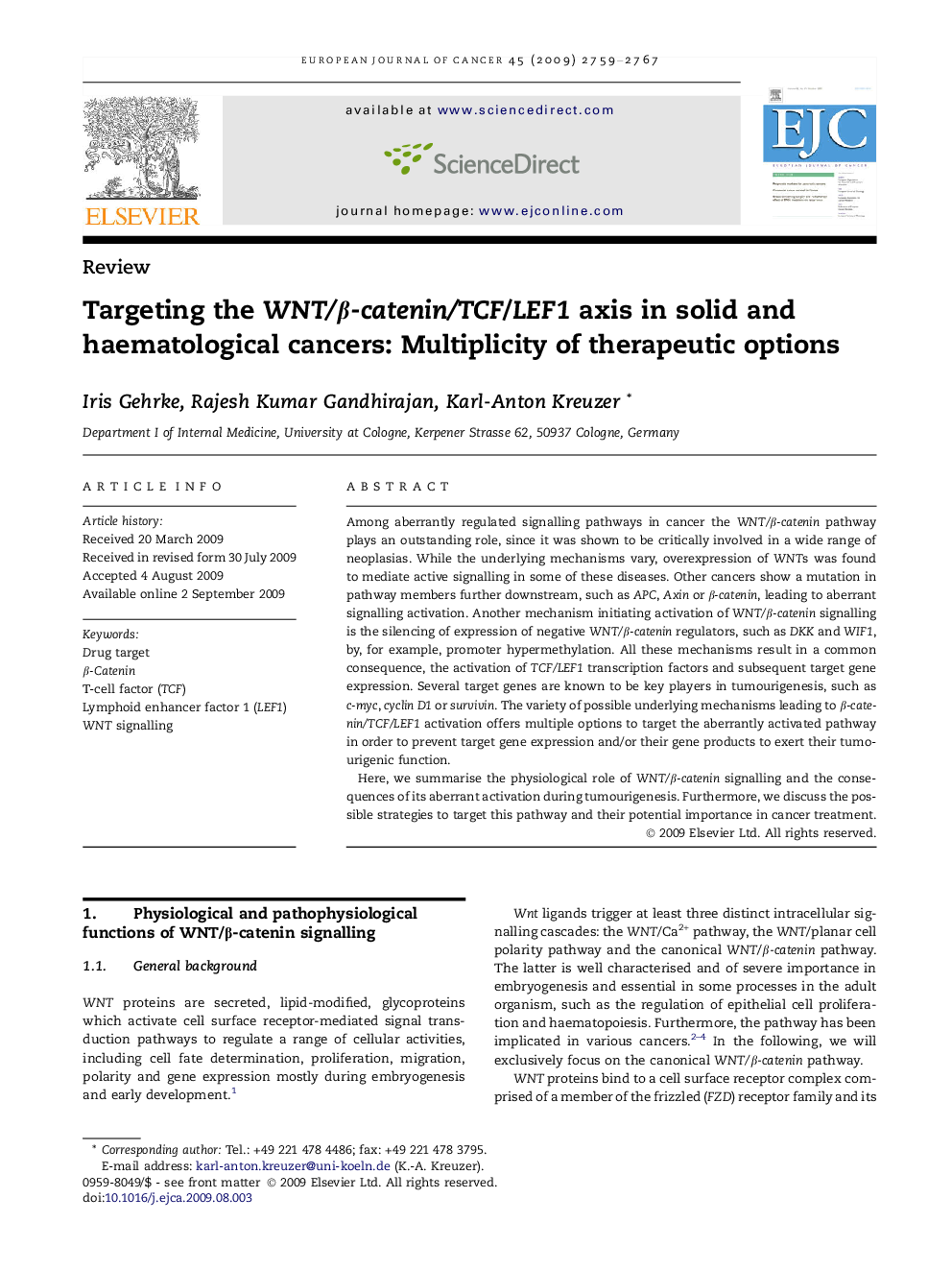| کد مقاله | کد نشریه | سال انتشار | مقاله انگلیسی | نسخه تمام متن |
|---|---|---|---|---|
| 2123588 | 1547222 | 2009 | 9 صفحه PDF | دانلود رایگان |

Among aberrantly regulated signalling pathways in cancer the WNT/β-catenin pathway plays an outstanding role, since it was shown to be critically involved in a wide range of neoplasias. While the underlying mechanisms vary, overexpression of WNTs was found to mediate active signalling in some of these diseases. Other cancers show a mutation in pathway members further downstream, such as APC, Axin or β-catenin, leading to aberrant signalling activation. Another mechanism initiating activation of WNT/β-catenin signalling is the silencing of expression of negative WNT/β-catenin regulators, such as DKK and WIF1, by, for example, promoter hypermethylation. All these mechanisms result in a common consequence, the activation of TCF/LEF1 transcription factors and subsequent target gene expression. Several target genes are known to be key players in tumourigenesis, such as c-myc, cyclin D1 or survivin. The variety of possible underlying mechanisms leading to β-catenin/TCF/LEF1 activation offers multiple options to target the aberrantly activated pathway in order to prevent target gene expression and/or their gene products to exert their tumourigenic function.Here, we summarise the physiological role of WNT/β-catenin signalling and the consequences of its aberrant activation during tumourigenesis. Furthermore, we discuss the possible strategies to target this pathway and their potential importance in cancer treatment.
Journal: European Journal of Cancer - Volume 45, Issue 16, November 2009, Pages 2759–2767